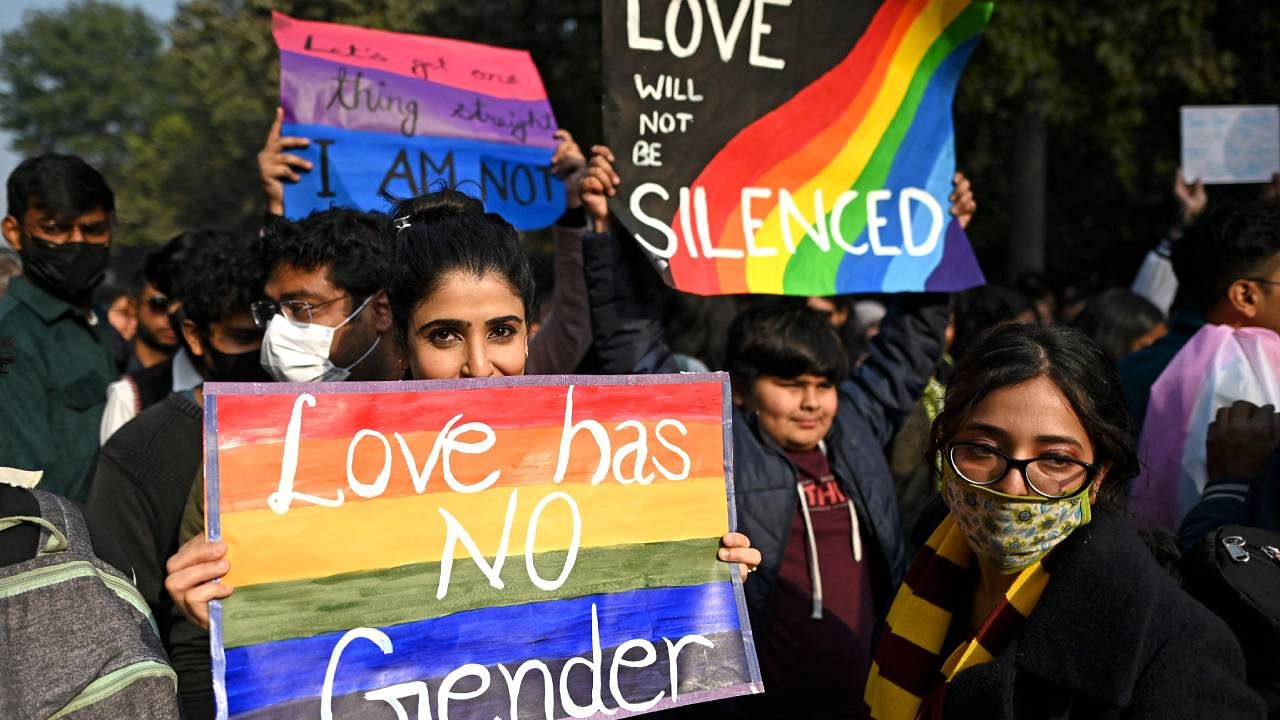
Hundreds of people took part in the first Delhi Queer Pride march in three years on Sunday as pressure grows for legal recognition of same-sex marriage in the country.
The Supreme Court is due to hear in March a clutch of petitions from gay couples seeking same marital rights as heterosexual couples, five years after it struck down a colonial-era ban on gay sex.
"Decriminalisation has only targeted one aspect of it but there's a larger aspect and the rights are still not there for the LGBTQ community," said Ajay Chauhan, a participant in Sunday's march.
"We need to really focus on those rights like inheriting properties together (and) opening bank accounts. Marriage is one big thing because once marriage comes into play then all these other aspects of the rights will be met," Chauhan told AFP.
A favourable ruling by the Supreme Court could pave the way for the nation of 1.4 billion people to become the second jurisdiction in Asia to recognise same-sex marriage after Taiwan.
Prime Minister Narendra Modi's administration has however resisted previous attempts to formally recognise same-sex relationships in cases heard in lower courts.
On Friday, opponents to same-sex marriage -- including right-wing Hindu groups -- staged a small demonstration in Delhi outside the Supreme Court.
Sunday's colourful Pride March held in the centre of the Indian capital was the first in three years because of the coronavirus pandemic, and it attracted as many as 800 people, according to an AFP journalist.
In 2018, the Supreme Court struck down a statute introduced by the British more than 150 years earlier that criminalised gay sex and threatened participants in consensual same-sex relationships with up to a decade in prison.
Attitudes to homosexuality have softened somewhat in India in recent years, at least among the urban middle class, with more portrayals of LGBTQ characters in Bollywood films and series.
But in the largely socially conservative and devout country, many LGBTQ Indians still risk being shunned by their families, at work and by friends when they come out.